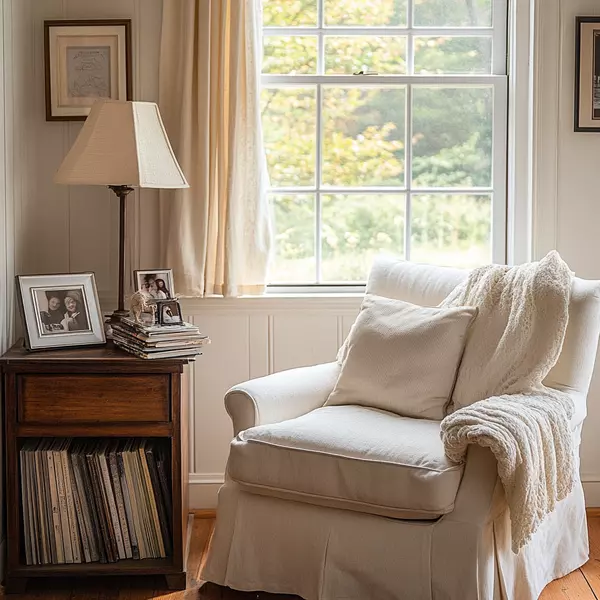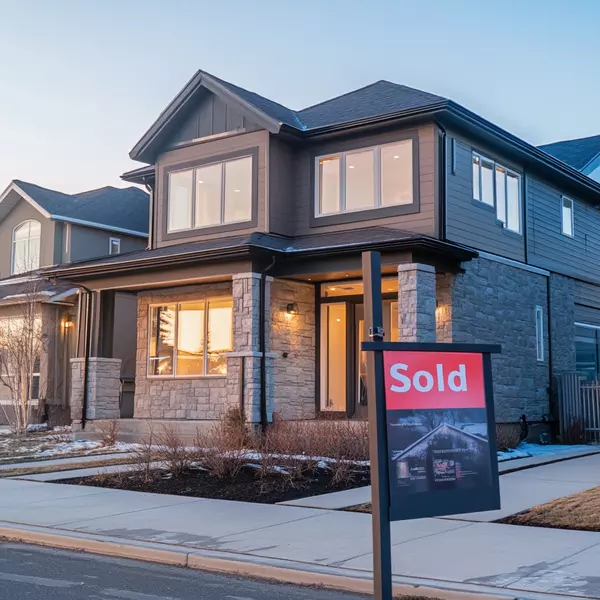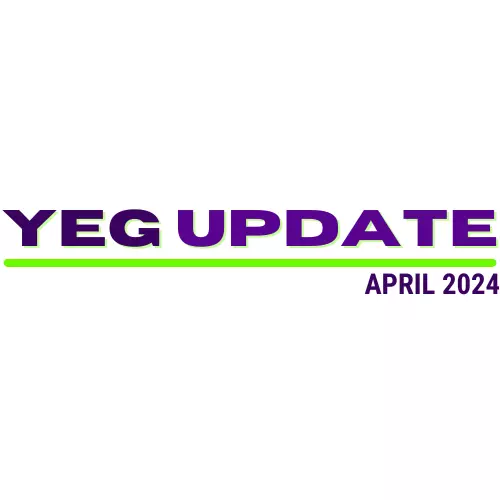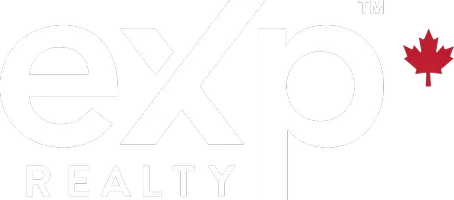

Why You Should Never Underprice Your Home: A Comprehensive Guide to Pricing for Maximum Profit
Introduction: Why Pricing Your Home Right is Crucial Pricing your home isn’t just about slapping a number on it and hoping for the best. It’s one of the most critical decisions you’ll make in the selling process. Why? Because the price tag you set can either draw in serious buyers or scare them away. The right price helps you sell quickly and profitably, while underpricing could cost you tens of thousands of dollars. In this guide, we’ll explore why pricing too low is risky and how to ensure you get the best possible price for your home. The Importance of Proper Home Pricing Setting the correct price for your home is not about guesswork; it's a strategic decision. A well-priced home attracts more buyers, increases competition, and ensures that you sell it faster, maximizing your profit. On the other hand, a poorly priced home can sit on the market for months or lead to regret after the sale. Why Pricing Too Low Hurts Your Sale Financial Losses and Undervaluation Depending on the market at the time, when you underprice your home, you're essentially could be leaving money on the table. Whether you’re trying to attract more buyers with a lower price or simply misjudge your home’s market value, this strategy often backfires if you don't have a complete marketing strategy that guarantees maximum exposure to your home. Selling below market value means you miss out on potential profit that could make a significant difference in your financial future. Market Perception of a Low Price Think about it: It truly depends on the market but think about it, what do buyers assume when they see a low price tag? In many cases, if the market isn't a strong sellers market in Edmonton, a low price can raise red flags. Buyers may wonder, "What’s wrong with this home?" or assume that the seller is desperate. This perception can actually reduce buyer interest and weaken your negotiating position. If it is a strong sellers market, it is essential that there is a strategy of maximum exposure so that the entire market is aware of your home. Conducting a Comparative Market Analysis (CMA) What is a CMA and How Does It Work? A Comparative Market Analysis (CMA) is a critical tool used by real estate professionals to determine the market value of a home. This analysis involves comparing your home to similar properties that have recently sold in your area. Think of it as creating an "Apples to Apples" comparison. By looking at homes with similar features and amenities, you can better understand what buyers have most recently paid for a home like yours and give us some idea as to what home buyers in Edmonton are willing to pay. Analyzing Comparable Homes When conducting a CMA, you’ll want to focus on homes that have sold within the last 3-6 months depending on the current real estate market in Edmonton. These homes should be a similar style and in the same general location. They should have similar square footage, lot size, and number of bedrooms and bathrooms. This helps create an accurate picture of how your home should be priced. Adjusting for Differences Not every home will be an exact match to yours. Maybe your home has a larger lot or more recent renovations than comparable properties. Adjusting for these differences—like adding value for a newly remodeled kitchen—can help you avoid underpricing your home. Getting Professional Assistance The Realtor’s Role in Pricing Real estate agents have access to comprehensive market data and tools that help them provide an unbiased, accurate estimate of your home’s value. It is imperative that you select a Realtor who brings an objective eye and a wealth of experience, ensuring you set the right price for your home. Benefits of a Professional Appraisal For homes with unique features or those in areas with few comparable sales, hiring a professional appraiser can offer additional assurance that you’re pricing your home correctly. An appraiser’s detailed analysis goes beyond what a CMA can provide, helping you understand your home’s true market value. Factors that Influence Your Home’s Value Location and Market Conditions Location is one of the biggest factors that determine your home’s value. Whether you live in a bustling urban center or a quiet suburban neighborhood, the area’s desirability, school districts, and local amenities all play a role in how buyers perceive your home. It is even important to understand how what your home backs on could increase or decrease the value of your home. Similarly, the current market conditions—whether it’s a buyer’s or seller’s market—impact how much buyers are willing to pay. Condition and Upgrades Most of today's home buyers in Edmonton love move-in-ready homes. If your home is well-maintained or includes modern upgrades like energy-efficient windows or a newly renovated kitchen, this can significantly increase its value. However, outdated or poorly maintained homes will often struggle to fetch top dollar. Be careful though, there are many upgrades that you many nener get your money back, The Power of Unique Features Does your home have a one-of-a-kind feature, like a stunning view or a custom-built deck? Highlighting these elements in your pricing strategy can help justify a higher price, ensuring you don’t undervalue the unique aspects of your home. It is also important to note, some of these features may not bring much value dollar wise, but they will help the buyer choose your home vs, the competition. Avoiding Common Pricing Mistakes Online Valuation Tools and Their Limitations Online home valuation tools, like Zillow’s Zestimate, can give you a ballpark figure for your home’s value, but they’re not RARELY accurate. These tools often miss out on critical factors like recent renovations, unique features, or the current condition of your home. Don’t rely solely on these tools when setting your price. Pricing Psychology and Buyer Perception Buyers typically search for homes within specific price brackets, like $250,000 to $300,000. Pricing your home at $299,000 instead of $300,000 can make it impossible for the buyers to know your home is on the market if they are searching in the next price bracket of 4300,000 TO $350,000. This probably is one of the biggest mistakes that home sellers and their real estate sale people make. Leaving Room for Negotiation While you don’t want to price too high, leaving a little room for negotiation can also be a massive error depending on the market. If the market is hot, leaving too much room for negotiations can have a buyer believe that the seller is not going to be interested in negotiating and so they write an offer on another home. Setting your price slightly (Less than 2%) above your bottom line gives you the flexibility to entertain offers without compromising your financial goals. Conclusion Pricing your home is both an art and a science. It’s about understanding the market, knowing your home’s value, having an aggressive marketing strategy, and working with professionals who can help you navigate the complexities of the selling process. By avoiding common pricing mistakes and leveraging expert advice with advanced home marketing techniques, you can confidently set the right price for your home in the Edmonton region and maximize your return. FAQs How does a CMA help with pricing? A CMA compares your home to similar properties that have recently sold, helping you determine a fair market value. Can I rely on online valuation tools? Online tools are a good starting point, but they often miss important details like upgrades and local market conditions. Why shouldn’t I price my home too low? Underpricing can lead to financial loss and may attract buyers who think something is wrong with the home. How do unique features affect my home’s value? Unique features, like a great view or high-end finishes, can justify a higher asking price. When should I get a professional appraisal? A professional appraisal is helpful when your home has unique features or there are few comparable properties in your area.
Read More

The Emotional Journey of Downsizing: Overcoming the Overwhelm
Downsizing is more than just a logistical process; it's an emotional journey that touches on memories, identity, and the future. If you’ve lived in your home for decades, the thought of sorting through all those belongings can feel like an impossible task. But, what if I told you it doesn’t have to be? In this guide, we’ll explore how to tackle the overwhelming process of downsizing with practical strategies, emotional support, and a step-by-step approach that makes it all manageable. Understanding the Emotional Challenges Why Downsizing Feels Overwhelming Downsizing is not just about moving from one home to another; it's about leaving behind a space filled with memories, milestones, and moments that define your life. This process can trigger feelings of sadness, guilt, and anxiety. The idea of parting with possessions, even those you no longer need, can feel like losing a part of yourself. The Fear of Losing Cherished Memories One of the biggest fears when downsizing is losing cherished memories. Every item, from an old photo album to a piece of furniture, holds a story. The fear that these stories will be lost if you let go of the items can make the process feel paralyzing. But it’s important to remember that memories reside within you, not just in your belongings. Strategies for Overcoming Overwhelm Now that we’ve acknowledged the emotional weight of downsizing, let’s look at some strategies to make the process less daunting. Build a Support System You don’t have to go through this alone. Having a support system—whether it’s a friend, family member, or even an online community—can make a huge difference. Engaging with others who are also downsizing can provide motivation and practical tips, making the journey feel less lonely. Start Small and Set Achievable Goals Feeling overwhelmed by the sheer volume of belongings? Start small. Focus on one drawer, one closet, or one room at a time. Set achievable goals for each day, and before you know it, you’ll see progress. These small wins can build momentum and make the entire process feel more manageable. Tackle Emotionally Neutral Areas First Begin with areas that are less emotionally charged—like the laundry room, kitchen, or garage. These spaces typically contain items that are easier to sort through and don’t hold as much sentimental value. Starting here can give you the confidence to tackle more emotionally significant areas later. Addressing Emotional Attachments Emotional attachments to belongings can make decluttering difficult. Acknowledge these feelings and remind yourself that memories reside within you, not the objects themselves. Consider taking photos of cherished items or writing down associated memories to preserve them without keeping the physical items. Combat Decision Fatigue Decision fatigue is real, especially when faced with too many choices. To combat this, tackle one small area at a time and set a timer for focused decluttering sessions. This approach helps prevent burnout and encourages consistent progress. Embrace the KonMari Method Marie Kondo’s method of asking whether an item "sparks joy" can be a powerful tool for decluttering. If an item doesn’t bring joy or serve a purpose, it may be time to let it go. This method helps you keep only what truly matters, making the downsizing process more meaningful and intentional. Careful not to underprice your home when selling. Practical Tips for a Smooth Transition After sorting through your belongings, the next step is ensuring a smooth transition to your new space. Here’s how: Focus on the Positive Aspects Concentrate on the benefits of downsizing, such as financial freedom, a simpler lifestyle, and less maintenance. Shifting your focus to these positives can help alleviate feelings of guilt and anxiety about leaving your old home behind. Create Familiarity in Your New Space In your new home, surround yourself with familiar furniture, photos, and artwork to create a sense of comfort and continuity. This familiarity will help ease the transition and make your new space feel like home. Seek Professional Help If the process feels too overwhelming, consider hiring a professional organizer or therapist to guide you through the emotional and practical aspects of downsizing. These professionals can provide expert advice, help you stay on track, and ensure that the process is as smooth and stress-free as possible. Edmonton Bungalows Stony Plain Bungalows Spruce Grove Bungalows Sherwood Park Bungalows St. Albert Bungalows Fort Saskatchewan Bungalows Leduc Bungalows Conclusion Downsizing doesn’t have to be an overwhelming or paralyzing experience. By understanding the emotional challenges, building a support system, and breaking down the process into manageable steps, you can transform this journey into an opportunity for growth and freedom. Remember, it’s not about losing your past; it’s about making room for your future. FAQs 1. How do I start the downsizing process?Start small by tackling one room or even one drawer at a time. Set achievable goals and build momentum with each small win. 2. What should I do with sentimental items?Consider taking photos of sentimental items or writing down associated memories. This way, you can keep the memories without holding onto the physical objects. 3. How can I overcome the emotional attachment to my home?Focus on the positive aspects of downsizing, such as simplifying your lifestyle and gaining financial freedom. Surround yourself with familiar items in your new space to create comfort. 4. Should I hire a professional to help with downsizing?If you’re feeling overwhelmed, hiring a professional organizer or therapist can be a great way to get expert guidance and ensure a smooth, stress-free process. 5. What are the benefits of downsizing?Downsizing can lead to financial freedom, less maintenance, and a simpler lifestyle, all of which can contribute to a more fulfilling and stress-free retirement.
Read More

Navigating Financial Pressures as a First-Time Home Buyer in Edmonton
Introduction Buying your first home in Edmonton can feel like navigating a labyrinth of financial pressures. Between rising housing prices, high mortgage rates, and additional costs, it’s no wonder many first-time buyers feel overwhelmed. Understanding these pressures and knowing how to manage them is crucial for a smooth home-buying experience. In this guide, we’ll walk you through the financial challenges and provide actionable strategies to help you make informed decisions. Understanding the Financial Pressures Rising Housing Prices Edmonton’s housing market has seen a significant increase in average home prices, now approximately $441,350. This trend places added pressure on first-time buyers to adjust their budgets and expectations. The rising costs can make it seem like the dream of homeownership is slipping away. Here is an example of less expensive homes between $300,000 and $360,000. High Mortgage Rates High mortgage rates contribute significantly to the financial strain. Higher interest rates mean higher monthly payments, which can impact your overall budget. Shopping around for the best mortgage rates and considering fixed-rate options are essential to managing this challenge. Additional Costs Homeownership comes with more than just a purchase price. First-time buyers need to factor in property taxes, home insurance, closing costs, and potential maintenance expenses. These hidden costs can quickly add up, impacting your financial comfort. Budgeting and Pre-Approval Determining Your Budget Start by establishing a realistic budget. This should include not only the home price but also additional costs such as taxes, insurance, and maintenance. A well-defined budget helps prevent financial strain and ensures you’re looking at homes within your means. If you are looking for homes between $360,000 and $420,000 you will find it here. Getting Pre-Approved Securing a mortgage pre-approval is a crucial step. It provides clarity on how much you can borrow and shows sellers you are a serious buyer. However, it’s essential to use this as a guide rather than a limit, ensuring that your monthly payments are manageable within your budget. Leveraging Incentives and Programs Federal Programs for First-Time Home Buyers The First-Time Home Buyer Incentive can be a game-changer. This program helps reduce your monthly mortgage payments without increasing your down payment, making homeownership more affordable. A simple example is extending the amortization of your mortgage. Edmonton-Specific Programs Edmonton offers its own set of programs, such as the Edmonton First Place Program. This initiative defers the land portion of the mortgage, reducing initial costs for eligible buyers. Exploring these local resources can provide significant financial relief. Tax Breaks and Rebates Take advantage of available tax breaks and rebates, such as the GST/HST New Housing Rebate. These can help reduce the financial burden of buying a home and make the process more manageable. Improving Financial Health Enhancing Your Credit Score A higher credit score can lead to better mortgage terms. Focus on paying bills on time, reducing credit card balances, and managing debt effectively to improve your score. Saving for a Down Payment Aim to save more than the minimum down payment required. A larger down payment can reduce the amount of interest paid over the life of the mortgage and help you secure better loan terms. Choosing the Right Location Researching Neighborhoods When selecting a neighborhood, consider future growth and amenities. Some areas may offer better long-term value and affordability, aligning with your lifestyle and investment goals. Considering Infill Developments Infill developments can provide more affordable housing options in established areas. While they might come with higher initial prices, they often offer greater convenience and potential for future value appreciation. Hidden Costs and Long-Term Planning Understanding Additional Costs Be aware of hidden costs such as closing fees, legal fees, and moving expenses. These can add up quickly, so it’s important to budget for them as part of your overall home-buying plan. Planning for Future Resale Value Consider long-term factors like neighborhood development and future resale value when choosing a home. This foresight can help ensure that your investment remains sound and that you get the best value for your money. Edmonton-Specific Considerations Property Taxes and Land Title Registration Property taxes in Edmonton vary based on location and property size. Include these in your monthly expenses. Additionally, registering your land title involves certain fees and paperwork that must be factored into your budget. Market Trends and Neighborhood Selection Stay informed about Edmonton’s housing market trends. Understanding shifts from downtown to suburban areas can help you choose a neighborhood that fits your lifestyle and investment goals. Conclusion While the financial pressures of buying your first home in Edmonton are substantial, careful planning and strategic use of available resources can ease the burden. By budgeting wisely, leveraging government incentives, and improving your financial health, you can successfully navigate the challenges of the housing market. FAQs What is the average home price in Edmonton?As of recent figures, the average home price in Edmonton is approximately $441,350. How can I improve my credit score before buying a home?Pay bills on time, reduce credit card balances, and manage your debt to improve your credit score. What are the main benefits of the First-Time Home Buyer Incentive?This incentive helps reduce monthly mortgage payments without increasing your down payment, making homeownership more affordable. How much should I save for a down payment?Aim to save more than the minimum down payment to reduce overall interest and secure better loan terms. What are common hidden costs when buying a home?Common hidden costs include closing fees, legal fees, and moving expenses. Budget for these to avoid unexpected financial strain.
Read More

Understanding Edmonton's Housing Market in April 2024
Overview of Edmonton's Housing Market in April 2024 Edmonton's housing market in April 2024 demonstrates resilience amidst fluctuating economic conditions. Supported by moderate economic growth and a stable employment landscape, the market has witnessed subtle price adjustments and a consistent demand fueled by population growth. Economic Factors Influencing the Housing Market Interest Rates and Their Impact on Real Estate in Edmonton The current low interest rates have bolstered buying power, enabling more Edmontonians to consider homeownership. However, potential rises could dampen this trend. Population Growth and Housing Demand in Edmonton Edmonton's growing population, driven by both natural increase and immigration, continues to pressure the housing supply, maintaining a seller's market atmosphere. Analysis of Housing Market Trends in Edmonton Price Trends in Edmonton April 2024 April saw a slight increase in median home prices, attributed to the low inventory and sustained demand. The average price of a single-family home in Edmonton now stands at approximately $450,000. Sales Volume and Market Activity Sales have remained robust, with a notable interest in suburban areas, reflecting a trend towards more spacious living accommodations post-pandemic. Future Outlook for Edmonton's Housing Market Predictions for the Rest of 2024 Analysts predict a stable market with the potential for slight price increases as Edmonton continues to attract investors due to its relative affordability compared to other major Canadian cities. Long-term Trends and Market Health The long-term outlook remains positive with gradual appreciation expected. This is bolstered by Edmonton's strategic economic initiatives and ongoing infrastructure improvements. Challenges Facing Edmonton's Housing Market Affordability Issues Despite the market's stability, affordability remains a concern for many, particularly first-time buyers and low-income families. Supply Constraints and Construction Delays Supply issues, exacerbated by delays in construction due to material shortages and logistical challenges, continue to pose significant hurdles. Opportunities in the Edmonton Housing Market Investment Hotspots Areas such as Windermere and The Orchards are becoming increasingly popular for their new developments and promising returns on investment. Emerging Neighborhoods for Homebuyers and Investors Neighborhoods like Griesbach and Laurel are drawing attention for their community-focused planning and family-friendly amenities. Advice for Homebuyers and Investors Strategies for Navigating the Edmonton Market Prospective buyers are advised to act swiftly on desirable properties and consider long-term potential rather than short-term gains. Tips for First-time Homebuyers First-time buyers should explore various financing options and consider properties in emerging neighbourhoods to maximize their investment. The Role of Government and Policy in Shaping the Market Recent Policy Changes and Their Effects Recent governmental initiatives aimed at improving housing affordability and accelerating construction have begun to show positive effects. Government Initiatives Supporting Housing Programs like the First-Time Home Buyer Incentive help mitigate the upfront costs of purchasing a home, making it more accessible for young families. Conclusion: The Future of Housing in Edmonton As Edmonton continues to grow, both in population and economically, the housing market is expected to remain a vital component of the city's overall health and prosperity. With careful planning and continued governmental support, Edmonton can ensure a balanced and inclusive housing market for all its residents. FAQs How do I choose a real estate agent to work with? Select an agent with strong local market knowledge, a good track record, and one who understands your specific needs and preferences. If you are selling your home, make sure they have a dynamic marketing plan that will guarantee that your home will be exposed to thousands of potential buyers every week. If I find a house I like, how do I make an offer? Work with your real estate agent to submit a competitive offer based on market analysis, your budget, and other considerations like contingencies. Should I sell my home before buying a new one? This decision depends on your financial situation and market conditions. Selling first might reduce financial stress, whereas buying first might ensure you secure your desired home. What should I know about closing costs as a buyer? Closing costs can include loan origination fees, appraisal fees, title searches, title insurance, surveys, taxes, deed-recording fees, and credit report charges. How can I determine my budget for buying a house? Consider your total income, existing debts, credit score, available savings for a down payment, and additional costs like property taxes and homeowners insurance.
Read More
Categories
- All Blogs (22)
- downsizing (2)
- Eco-friendly Homes (1)
- Edmonton Bylaws (2)
- Events & Community News (4)
- First Time Home Buyer (4)
- Gardening & Landscaping (1)
- Home Buying Tips (14)
- Home Insurance (2)
- Home Selling Tips (6)
- How to (9)
- increase home value (8)
- Interior Design (1)
- Local Market Trends (8)
- market Influences (11)
- Market Update (9)
- Migration (2)
- Mortgage Info (2)
- Moving & Relocation (8)
- Neighborhood Profiles (4)
- Real Estate FAQs (15)
- Real Estate Investment (1)
- Real Estate Laws & Regulations (2)
- Technology in Real Estate (2)
Recent Posts










